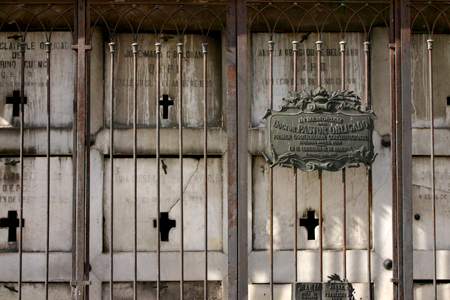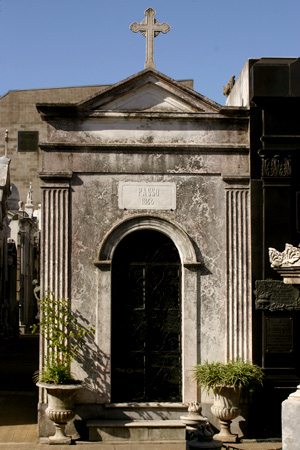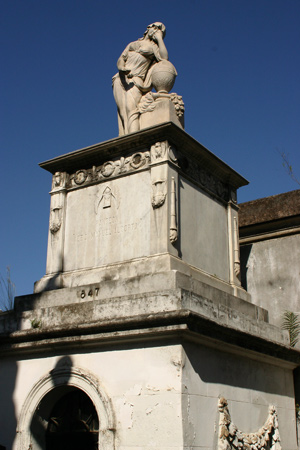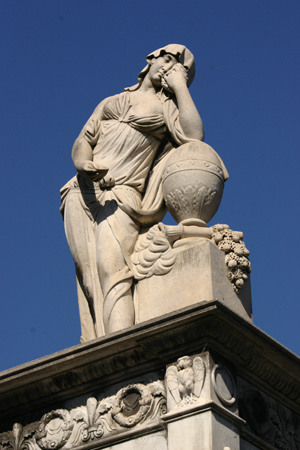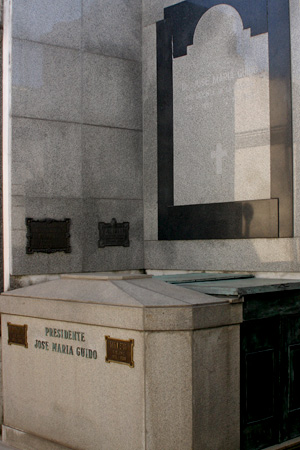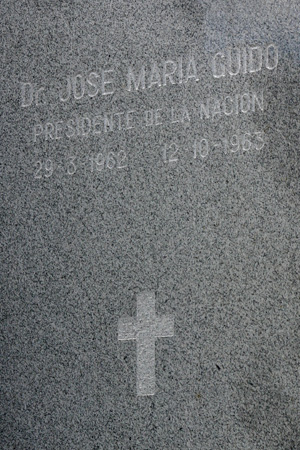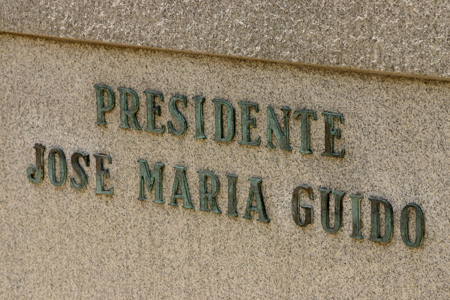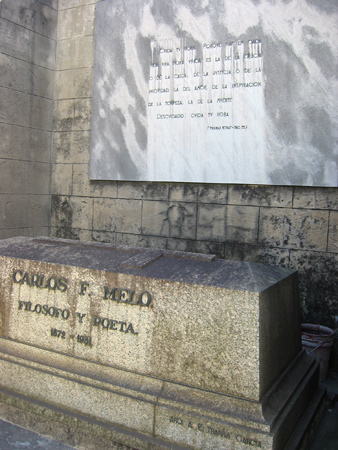
Born in the province of Entre Ríos in 1872, legal studies brought Carlos Francisco Melo to Buenos Aires by the end of the 19th century… just when the city & the nation were coming into their own. Melo received acclaim for his doctorate thesis & was rewarded with important government positions. A brief stint as a representative in Congress for the UCR party lead to appointment as president of the University of La Plata in 1920. Melo returned to politics as candidate for Vice-President in national elections but his ticket failed to get the vote. After the military coup of 1930, he was appointed head of the National Library, a position Melo held until his death in 1931.
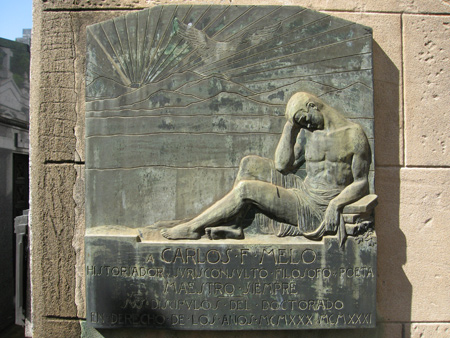
Besides his political & educational duties, Carlos Melo was recognized during his lifetime as a writer & poet. Although his works are not yet available online, a short verse from Melo’s “Piedras Rotas” (Broken Stones) can be found over his tomb:
11 Comments“Cuida tu hora. Porque hay en cada vida una hora única, es la de la gracia, o de la caída, de la justicia o de la iniquidad, la del amor, de la inspiración, de la torpeza, la de la muerte. Descuidado: cuida tu hora.”
“Take care of your hour. Because there is in each life one unique hour, it is that of grace or of downfall, of justice or of vice, of love, of inspiration, of clumsiness, that of death. Careless one: take care of your hour.”
